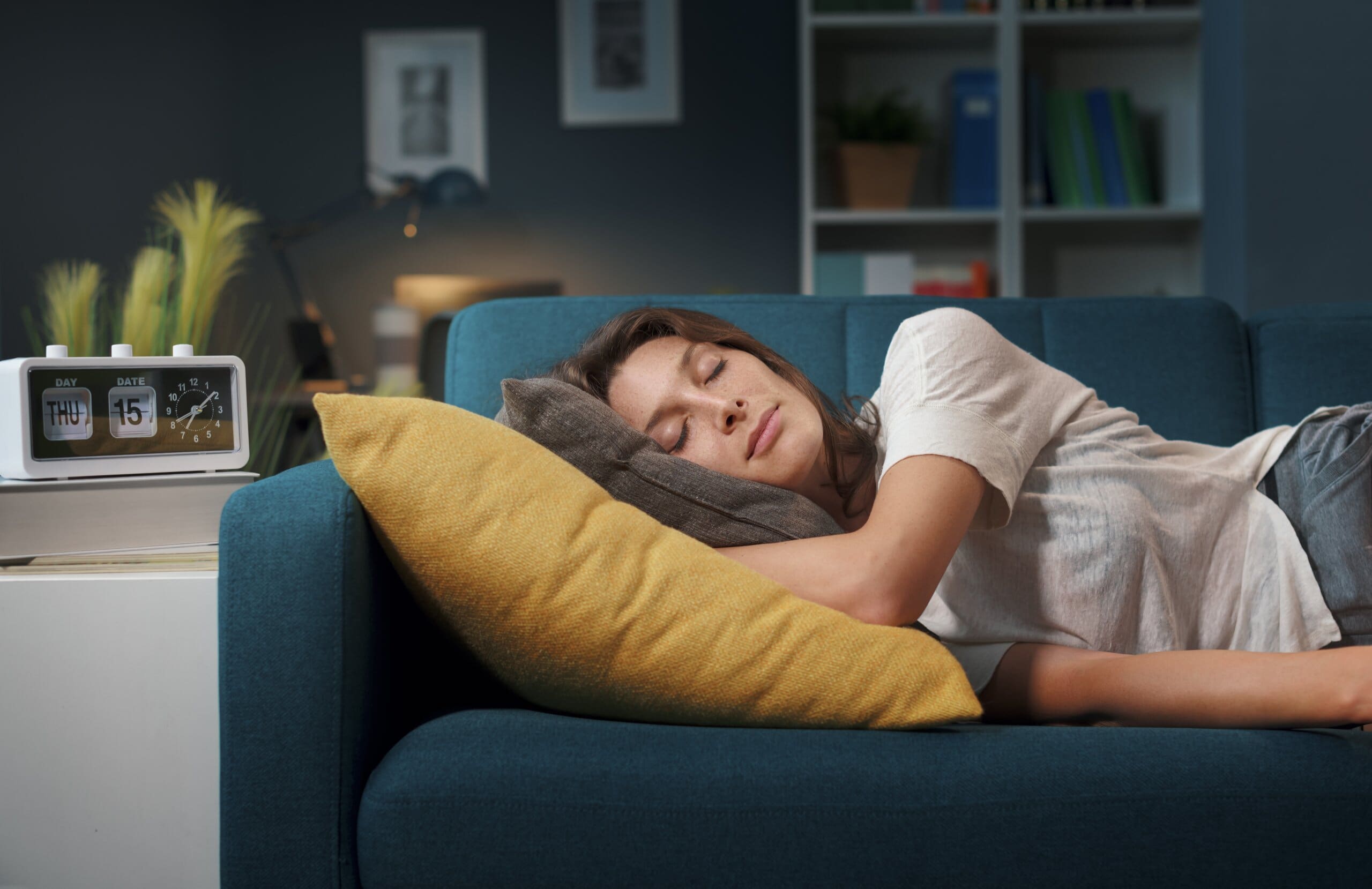Biologically, the amount of sleep you need can change based on a variety of factors, for example, teenagers need more sleep than adults, and, as we’re going to delve into, women need more sleep than men.
So it’s good news for the sleepy girls out there - you’ve got a valid excuse to stay wrapped up in the covers for a few more minutes while your partner makes you a cup of tea…

Do women need more sleep than men?
Studies have shown that women have, on average, an additional 11 minutes more sleep than men. From hormonal changes to additional (exhausting) caregiving responsibilities, these extra 11 minutes might not seem like enough, and it’s well-recorded that all adults, regardless of gender, aren’t getting enough sleep.
But do women need these additional minutes? There are a number of reasons why women sleep even just 11 minutes more than men, even when they could be doing with more.
Why do women need more sleep?
There are a range of reasons why women need more sleep than men, including:
Menstrual cycle
The menstrual cycle can cause several well-known symptoms, from period pains to night sweats. But being on your period can also mean you need more sleep.
Period fatigue is caused by hormonal changes, namely, your estrogen levels lowering, which is the hormone responsible for you feeling energetic. Low iron levels during your period can also cause women to need more sleep, especially if you experience heavy bleeding.
Menopause
Women going through menopause need more sleep, as not only do hormonal fluctuations cause an imbalance in energy regulation, but other symptoms like low mood, menopausal hot flashes, and a decline in muscle strength can lead to women needing to catch up on their rest.
Pregnancy
Getting the right amount of sleep when pregnant is vital for both mother and baby. Your body is working hard to create a baby, draining your energy and causing hormonal changes that make you feel tired, nauseous, and emotional.
You may need more sleep later on in pregnancy because of the extra weight you’re carrying, which is, again, using your energy supply and making you feel more tired. You’re also more likely to suffer from Restless Leg Syndrome, making it harder to get the sleep you crave.
Additional responsibilities
One of the main reasons women need more sleep than men is the chores, errands, and general household tasks they traditionally take on. While modern relationships may alleviate some of this fatigue, women still do, on average, 2.3 hours more housework than men a day.
Once upon a time, men worked while women took care of the household, and as society has progressed, women now have the same work opportunities. However, the share of household responsibilities has not been so equal, with a UCL study showing that in 93% of British households, women do more housework than men, even when both partners work full-time.
Taking care of children and managing the household, as well as working a full-time job, uses up vital energy resources, causing women to need more sleep than men.
How much sleep do women need?
Like all adults, women need between 7-9 hours of sleep per night to maintain a healthy lifestyle. However, due to the many factors that make their energy supply dwindle faster, it’s suggested that the amount of sleep women need is closer to the 9-hour mark.
Sleep Expert and CEO of MattressNextDay, Martin Seeley, suggests that women should be getting at least 8 and a half hours of sleep, while men can, generally, settle for 7-8. He says, “If you’re a man in a situation where you can lessen the emotional and physical toll of a woman in your life’s daily routine, then you should. Biologically, women need more sleep than men, and we should encourage the women in our lives to take these extra minutes to recharge.”

How women can get the sleep they need
Because women need more sleep than men, it’s vital they take the time to get this rest. A good bedtime routine is one, but there are several other steps that women can take to get a better night’s sleep.
Share the workload
As we mentioned earlier, women - even those that work full-time alongside their partners - still take on the majority of household tasks. As a woman, and although it’s easier said than done, it’s important to ask for help where possible and encourage an even split of household chores to lighten the emotional and physical load. For single parents, this may be reaching out to other family and friends, or creating a schedule that utilises your time efficiently while leaving room for rest.
Have a conversation with your other half about sharing tasks around the house, whether it’s the school run, tidying and dusting, or making dinner. A good relationship works as a team, making room for each other’s needs, so if you explain that you need to work on your sleep quality, a supportive partner will be happy to help.
Put yourself first
Similarly, it’s important to prioritise your health and wellbeing. Becoming burnt out and unwell won’t benefit anyone, not least yourself, so it’s important to learn to say ‘no’ to things that will prevent you from getting the rejuvenating rest you need.
Whether it’s a school bake sale, a family BBQ, or even drinks with mates, it’s okay to decline and save that time for yourself. Pour yourself a warm bath, try some meditation, and let your body recover.
Have a consistent bedtime routine
Your bedtime routine is important for a number of reasons - not only does it signal to your brain that it’s time to unwind and get ready for bed, encouraging the production of melatonin, but it gives you that all important time to yourself to focus on your needs.
A shower before bed, a detailed skincare routine, or reading a book in bed are all ways you can relax and unwind before sleep. However, it’s important that you prioritise this routine and don’t let anything get in the way of it. If you’re a parent, it’s easy to dismiss your own needs for that of your children, but if possible, make sure you’re setting time aside before bed to calm and soothe yourself.
Figure out what’s going wrong
There might also be a number of things getting in the way of you enjoying a full night’s sleep. From sleep anxiety to insomnia, plenty of people struggle to get to sleep. You can take a look at our advice blog to see if anything speaks to you, but you might want to consider speaking to a medical professional if you are becoming sleep-deprived.

Improving your sleeping environment
In fact, our Snooze News section hosts plenty of helpful tips on getting a proper night’s sleep. However, you may also want to consider if you’re prioritising your sleep set-up. A sagging mattress or lofty bed frame won’t encourage a good night’s rest, so consider buying a new mattress and stylish bed frame with storage to revolutionise your sleep quality.




